Today, the Syrians are talking about the “seven lean years” that may be followed by “seven years of blessings.” Women, whose features have been affected by pain, are not optimistic. They lost their children in a war that has forced them to wait for another life in the beyond that may bring them together. Hence, death has become one of their simplest and most immediate wishes in this life.
Arabs’ “al-Khansa,” “the one who bears pain,” “the greatest sacrificer,” and many other titles were attributed to the Syrian woman in an attempt to reflect her status as a woman who has lost her son, husband, and brother. However, although these titles did not effectively reflect the situation of the Syrian mother, the only truth they were able to tell is that the mother became the biggest loser in a war which did not distinguish between the civilian and the military, and between one religion and another, and even between different political positions.
The state of queuing that has become a characteristic of Syrian society disappeared when Syrian mothers lost their sons during the last years of the war. These mothers are now united by one pain which transcends the political and sectarian considerations. This pain caused a deep injury which cannot be healed no matter how many years passed. Despite the Syrians’ hope for a future that may erase the effects of the war, this cannot end the sorrow of a mother who loses her dearest.
Despite the declared agreement that the Syrian mother’s loss of her son cannot be compensated even if she gave birth to ten others, the talk about her situation is like trading with deep suffering and pain, as some mothers described to Enab Baladi. They said that they preferred to distance themselves and unite with their pain away from propaganda, which brings no benefit, except empty words of sympathy.
“Mother of the martyr” … propaganda conflict and trading with pains
In conjunction with a celebration which pays tribute to the mother, the Syrian scene was overshadowed by the image of the martyr’s mother, whose son died while fighting with the Syrian regime, or died in detention, or while fighting in the Syrian opposition, amid the struggle of various institutions to turn the situation in their favour by highlighting the previous three pictures.
In the search for international legitimacy, the parties to the conflict active in Syria have changed perceptions by covering the image of war and its brutality and embellishing the civil image that is contrary to the military one, in a country which went upside down, and in which human concepts have been distorted and have become dubious.
A few days ago, on March 21, 2018, a Syrian film entitled Dhafaer al-Nar (Fire Braids) appeared on the Syrian satellite television and displayed stories of Syrian girls who preferred to fight on the fronts instead of having a civilian life. The “First Lady of Syria” appeared in the middle of a group of fighters, and talked about the role that the Syrian woman played throughout history, and of course did not miss the opportunity to talk about the “mothers of martyrs.”
Before Dhafaer al-Nar film, Umm al-Kul (The Mother of All) is another film which was shown on “The Mother’s Day” in its last version of 2017. The Mother of All is the same “mother of martyr” honored by Asma al-Assad in every forum and occasion. However, she singled out the mothers of Aleppo who lost their children during the control of the eastern districts of Aleppo at the end of 2016.
The spouse of the head of the Syrian regime, who was not famous before 2011 as she is now, has made the “International Women’s Day,” “Martyrs’ Day,” and “Mother’s Day” the most prominent activities on her agenda. She sometimes showed respect for the wives and mothers of the martyrs, and at other times talked about the role of the Syrian mother in urging her children to sacrifice for the homeland.
These civic activities came in the context of attracting public opinion and diverting the world from the grave violations committed against the mothers themselves. The official story says that Asma al-Assad shares the pain of the martyrs’ mothers and supports them morally, while her husband seeks to grant them additional benefits, support them materially and secure a better future for their children. Here the mother said that nothing could compensate for the loss of someone dear to her.
Apart from these activities, civil society organizations in the regime-held areas became a political turning point when they were put in the context of Baathist propaganda which proved to be formally effective in managing the affairs of the martyrs’ families and providing them with additional advantages. The same organizations are waiting in the opposition areas for the most effective opportunity to prove, even partly, that effectiveness.
Despite the irregular work of civil society organizations in the Syrian opposition areas, which have not been able to create enough opportunities to help the martyrs’ mothers, they have struggled to fight against the political situation they face by supporting civil life through activities that drew attention to important issues, most notably, the issue of the detainees’ mothers and wives and the dead detainees in the regime jails, which occupied the public opinion without much effect.
Caught between the two parties, it seems that some of the mothers of the dead appeared to be more sensitive about the way the media and the Syrian organizations treated their case. They sensed the “dreaded” trading with their suffering for the purpose of attracting international sympathy, and sometimes to garner financial support from outside parties, which led the mothers to opt for isolation and living with their pain away from the hustle of political interests.
Samar Ziada … A loss summarizing the story of Darayya
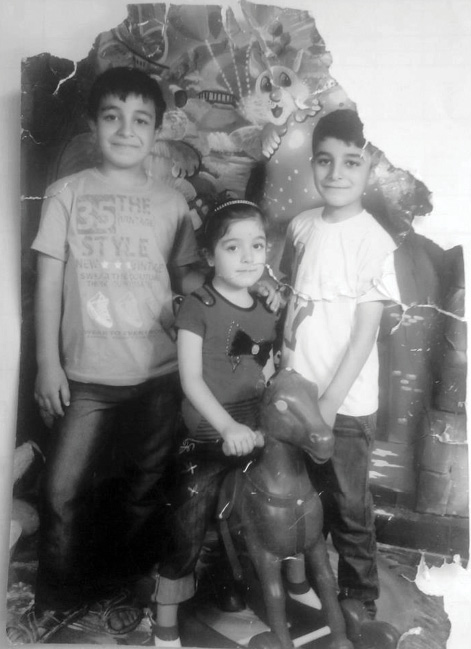
Muayad (10 years), Ahmad(8 years) and Siba (5 years) Samar’s children who died in an air raid on 29 November
One year was enough to turn Mrs. Samar Ziada’s life upside down. She is a mother of five children, three of whom were killed under bombardment and two others were detained with their father in the Syrian regime prisons. Then, the quest for the tiniest piece of news, which may restore something of what she lost, has started.
The story of Samar, 40, began in the second year of the Syrian revolution, when her middle son, Mohammed, disappeared and she could not know anything about him. She later discovered that he had been detained in one of the security branches of the Syrian regime.
In her home in Darayya, Umm Khalid was spending her time waiting for Mohammed to return, while the Syrian regime was waging its military campaign against the city with excessive hostility that the mother did not know or hear about before.
“My little daughter, Siba, was preparing to enter the kindergarten after the Eid al-Adha holiday,” said Umm Khaled to Enab Baladi, while showing the picture of her young children. She added “We took this picture of Siba and her two brothers before she went to kindergarten.”
Less than a month after Siba started attending kindergarten, the day which would change the life of the family has come.
“Muayad, 10 , Ahmed, 8, and Siba, 5, went with their grandfather to Duhr prayer on an Autumn day in 2012, then they went home, sat next to me, kissed me and then went back with their grandfather to fix the bicycle down the building, said Umm Khalid recalling that day.
What happened a few moments after the children went absent caused Mrs. Samar to fall into a state of unconsciousness, until she woke up then with a blood-stained face and surrounded by destruction from each side. A warplane bombed the building in which she lives, and destroyed half of it.
“I woke up to the voice of young men calling, so I told them that we were inside, at home. I was taken to the hospital along with my husband and my eldest son Khalid … On my way to the hospital, I was walking and calling my children’s names. They were nowhere to be found. I felt I was walking over them, for I knew they were under the rubbles.”
In the hospital, where Umm Khaled was being treated, she saw some young men carrying the body of a child in a blanket and coming out of the hospital. She soon realized that it was the body of her young son Ahmed. “I ran after them. I started to call them in the street, but I could not find them.” Ahmed was buried, but not alone, for Siba and Muayad were in the coffins beside him, they were buried without the sight of their mother.
Following the recovery of the rest of her family members, Umm Khaled went out with her family from Darayya in search of a safe place, to meet her dark fate at the first barrier of the Syrian regime.
Umm Khaled, her husband, and eldest son Khaled were arrested and taken to the Air Force Intelligence Directorate where she witnessed the torture of the remaining male members of her family. She suffered the pain of being forced to look at them during torture. Although she was then transferred to Adra prison, after about a month, she was not reunited with Khaled and her husband again, and she knows nothing about them since then.
“My wounds got deeper at prison when I heard the stories of other detainees. My imprisonment was another shock to be added to other shocks of losing my children, my husband, and then my son. I lost those who used to be my support system in life,” Mrs Samar describes one of the hard phases of her life.
Umm Khaled left prison two months later and spent her time moving around relatives’ homes before moving to Lebanon and then to Turkey, waiting for news about her son and husband.
“I hope that one day I will be able to come across news on Facebook that confirms that my husband and son have left prison,” says Umm Khaled, trying to find some hope, digging into the rubbles of her pain just like she did five years ago, when she dug up the ruins of her house to bring out the picture of her three children and bear it as a proof of her loss and deprivation.
Shaykha Abbas… “My lone child was the victim of Qamishli’s bombing”
Saykha thanked God because her only son was not at home when she awoke from her sleep and blood was covering her face and her daughter’s Eva. Before trying to identify the new place, which features have been obscured and replaced by destruction, smoke, and blood. She ran to her neighbours to tell them that her husband was travelling to Damascus and her son was visiting his grandfather’s house and that she and her daughter were okay.
Ayaz Sheikho’s mother recalled the bombing of Qamlishi, which took place on July 27, 2016. She describes that “bloody” and “ominous” day, when she woke up to the sounds of bullets and screams. Such scene looked more like a film for viewers from afar, while it was a nightmare for her and for her family.
Before describing the incident, the mother of Ayaz described her relationship with her only son, who graduated from high school and was preparing to get into college. She referred to her relationship with her son as the friendship which was introduced into her life once her son began the first stages of youth and when she started counting on him to be her support system in the future.
On that day, the father of Ayaz went to Damascus to enroll his son at the university, carrying the family’s hopes among university registration documents. Ayaz told his mother that he was going to his grandfather’s house to meet with his cousins. At that time, the mother, who felt alone at home without her husband and son, was not disturbed by the fact that he had to leave, especially that he needed a break after being exhausted by preparing for the Baccalaureate exam for months.
At midnight, Shaykha called her son to ask him whether she should wait him for dinner or not. He told her that he will have dinner at his grandfather’s house and asked her to eat and go to sleep because he might stay there. In order to make her feel more reassured, he sent her a picture through Whatsapp, and attached the following sentence “the sweetest mother ever, sleep and don’t worry.” She said that she felt happy when she saw him smiling.
Despite the absence of this state of reassurance, the mother went to sleep but only for one hour after which her life turned upside down. She woke up to the sounds of bullets and screams and witnessed scattered scenes, starting with the blood that covered her face and her daughter’s and the destroyed house, to the streets full of dead bodies and panic. “As if it was judgment day,” she said.
The features of those scenes disappeared from the sight of Ayaz’s mother when she was conscious and found herself at the hospital thinking that her son was in his grandfather’s house. After several calls, the mother and her daughter were unable to reach him, she started to feel anxious when she learned from her relatives that Ayaz was on his way home.
In the same hospital where the wounded and the dead were taken, Ayaz’s mother searched among the bodies, perhaps she won’t find her son among them. Her hopes were dashed when she found out that Ayaz was among 50 other killed by a truck laden with explosives in the western district of Qamishli. At that time ISIS assumed responsibility for the bombing.
A year and a half has passed since the departure of Ayaz, but nothing has changed the state which Shaykha Abbas has reached, refusing to recognize his death. She is still certain that Ayaz will respond to the messages she sends daily to his phone. She confirmed that she will continue to address his photo which is hanged in the living room, and that she will celebrate his birthday each year, refusing to mourn his death on that “ominous” day.
Mayssa Kammoun… “My son is a groom in paradise”
“My daughter was married seven months ago. I wanted to keep her by my side more, but this is fate,” said Mayssa to Enab Baladi Mayssa. “Arije, was my friend and all what has remained for me in life after Ziad was martyred.
Mayssa Kammoun, a Syrian woman from Darayya, who gave birth to Arije and Ziad at a young age, but they left her when she was forty, to signal the end of her motherhood and limit her upcoming future to just living on memories.
“I was surprised how his facial features changed during one year,” said Mayssa while she was flipping Ziad’s photos safeguarded on her phone. She pointed at one of the pictures and says, “He looked like a child here.” Then she flips the picture and resumes “He looks like a man here.” The change which has occurred at Zied is not unusual for that year, for he witnessed injury, arrest, and death.
Mayssa tells the story of her only son to Enab Baladi, and takes time to describe the details, starting with a “Black Saturday” on February 4, 2012, when Darayya has witnessed massive demonstrations, which the regime had confronted fiercely, killing about 17 of people.
Although Ziad was not among the martyrs, he took three shots which penetrated his body, and was taken to a hospital, and at that time his mother did not know anything about him yet.
“I was waiting at home during that time. I read Quran and tried to contact him. I felt that something was piercing my chest,” said Mayssa.
When Mayssa arrived at the hospital that day, her son was found at the delivery room because doctors feared he would be arrested. “For the same reason, he was transferred to another hospital and then to a medical facility in a house before his mother brought him home.
“One of his kidneys and part of his intestines were removed, and he also suffered damage to the liver and pancreas,” said Mayssa, adding a plotted timeline that paints a detailed account of her life, saying “after he was injured he still insisted on going out in demonstrations again. I wanted to take him out of Syria, for he represented my safety net in life after his father. ”
However, Ziad insisted on continuing the revolutionary work until he was arrested at a security branch where he was tortured in several ways, which his mother experienced from a distance and went through it all as he did. “I felt like I was with him, I felt the electricity that penetrated his body and the beating he was subjected to. I knew perfectly well that he would come out stronger than he was, and more determined to continue revolutionary activity. ”
After being released from prison, Ziad insisted on joining the Free Syrian Army combatants, despite the concerns of Mayssa, who asked him not to. However, Ziad was insisting on doing it, and he was at the leading ranks of the combatants, while his mother accompanied him to take care of him and prepare food for members of his group.
“The day before he was martyred, he kept kissing me and joking with me during the night. He asked his uncle to take care of me. In the morning he took a shower, wore perfume, prayed and told me ‘I am going to heaven’,” Mayssa described that day in great details, as if she wanted to keep the last scene of Ziad when he was alive.
Then, the end started when they informed her about her son’s martyrdom. “Your son is now a groom, he is martyred,” Mayssa said, using a talk full of metaphors. “When I arrived to see him, they dressed him with the wedding suit. I tried to hug him and hold him, but I could not, my little son had become a man.”
Salwa Taha… “The lost delight with the lost Imran”
“Imran was not like any child,” Salwa Taha sums up the fifteen years her son spent under her care before turning into a number among the victims of the Syrian war. His image remains engraved in the memory of his mother and brothers.
Salwa, a resident of the town of Talbiseh in the northern countryside of Homs, recalled the stages of her son’s short life and his early childhood to recount the details of his interests. “He loved pets, dogs and cats. He had a sort of curiosity towards these animals.”
The mother talked about her “innocent” son using nice words. “He was well-behaved, well-mannered and even a nice-looking young man.”
Although her other children are still with her, Imran’s death left a big void in their house which made it lose its previous splendor and light, for Imran used to “fill the house with life,” as his mother describes him.
The town of Talbiseh was one of the first Syrian cities that rose up against the Syrian regime, and one of the cities that have been most subjected to the regime’s fire since the beginning of the revolution in 2011.
In addition to dozens of children in his town, Imran was injured by an explosion’s shrapnel which occurred near his house, and his fate was to await his death in hospital following his severe injury.
“Imran was martyred on April 3, 2014. He was accidentally shot while walking near the area of the explosion and stayed in the hospital for 14 days,” Imran’s mother talked about one of the most difficult days of her life. She added: “Since the first day of Imran’s injury, I felt that he had died, I lost my son.” Her feeling was not filled with hope and wishes, as with the death of her son, Umm Imran has experienced “an indescribable feeling.”
Mrs. Salwa is one of hundreds of mothers who lost their children in Homs Governorate, where there have been about 18,000 victims, most of them were civilians.
Four years have passed since the death of Imran, but his mother still feels that “everything has changed around her,” and concluded saying, “I have not only lost Imran, losing him has made me lose a lot of things.”
“Martyrs,” immigrants, and detainees…
Syrian mothers have lost a lot
Despite the horrifying numbers the documentation networks of war victims in Syria have reported, there is a greater tragedy than those numbers which is still in the memory of thousands of Syrian mothers who lost their children in the war.
Loss does not only mean death in the Syrian definition, given the presence of thousands of detainees and forcibly disappeared people by the regime’s security authorities, as well as the immigration of millions of Syrians, and the dispersion of hundreds of thousands of families since the outbreak of war in Syria.
The Syrian Network for Human Rights (SNHR) shows that more than 217 thousand documented civilians have died in Syria from March 2011 until March 2018, 89.77% of them were killed by the Syrian regime, in addition to thousands of victims who only exist in the memory of their loved ones.
According to the same statistics, more than 13 thousand people were killed under torture by the Syrian regime forces, while more than 118 thousand Syrians are still in detention and enforced disappearance.
The weakest target
Over the past seven years, children have become an easy target for war machines that have killed 27,296 of them since March 2011, most of whom were females.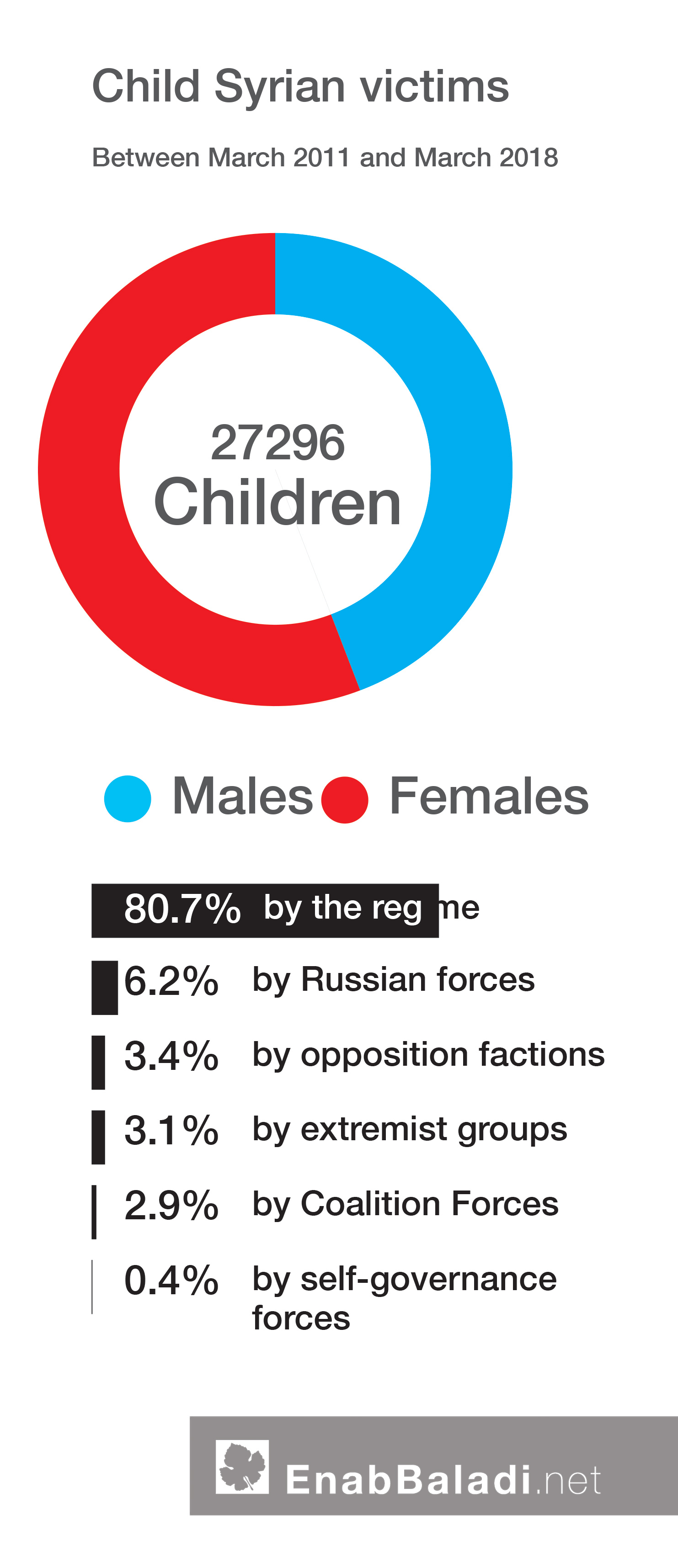
According to the Syrian Network for Human Rights, the regime’s forces are responsible for killing 80.73 percent of the total child victims, while Russian air forces have killed more than one thousand children.
The United Nations Children’s Emergency Fund (UNICEF) estimates that 8.4 million children have been affected by war, which equals more than 80 per cent of the total number of children in Syria, both inside the country and as refugees in neighbouring countries, noting that more than 3.7 million Syrian children, or about one in three Syrian children, have been born since the start of the war, according to UNICEF estimates of 2016.
On the other hand, children constitute about half of the total Syrian refugees around the world, which reached more than five million since the start of the war in Syria, according to the United Nations estimates.
The European Statistical Office (Eurostat) estimated that in only 2016, there have been about 11 thousand Syrian children who applied for international protection without their relatives to EU member states.
The confusing issue
The popular proverb says that “the mother of the martyr sleeps well while the mother of the detainee does not,” which is the case of thousands of Syrian mothers who have no knowledgeabout the fate of their children and who live oscillating between hope and mourning.
The Syrian Network for Human Rights has documented more than 118 thousand people who have been in detention or enforced disappearance from 2011 to 2018, more than 104 thousand of whom are in Syrian regime detention centers.
However, the matter of prisoners and detainees remains one of the most complicated issues in the Syrian war. Political attempts to uncover the fate of the detainees and release them have not succeeded in pushing forward to find a solution for this matter.
In addition to the detainees in Syrian regime detention centers, there is a salient issue of extremist groups’ prisoners whose fate seems to be more unclear as they are used as human shields during the battles, while the opposition factions and the Kurdish organizations have contributed to the disappearance of more than 4,000 Syrians until today.
In all parts of the world
More than 5.4 million people have left Syria since 2011 in search of safety in neighbouring countries (Lebanon, Iraq, Jordan, and Turkey), as well as European and other countries.
Turkey ranks first in terms of hosting Syrian refugees, as it hosts 46 percent of the total Syrian refugees worldwide, while European countries host about 11 percent of them.
In the Syrian interior, millions of civilians have been internally displaced in an attempt to flee the most subjected areas to bombings towards the least destroyed areas. In addition, settlements and reconciliations in some Syrian areas have led to the displacement of tens of thousands of Syrians to other areas.
The two crises of asylum and displacement have resulted in several other crises, such as the dispersion of entire families as well as thousands of parents’ loss of their children without being able to ascertain whether they were alive or dead.
if you think the article contain wrong information or you have additional details Send Correction
النسخة العربية من المقال
-
Follow us :











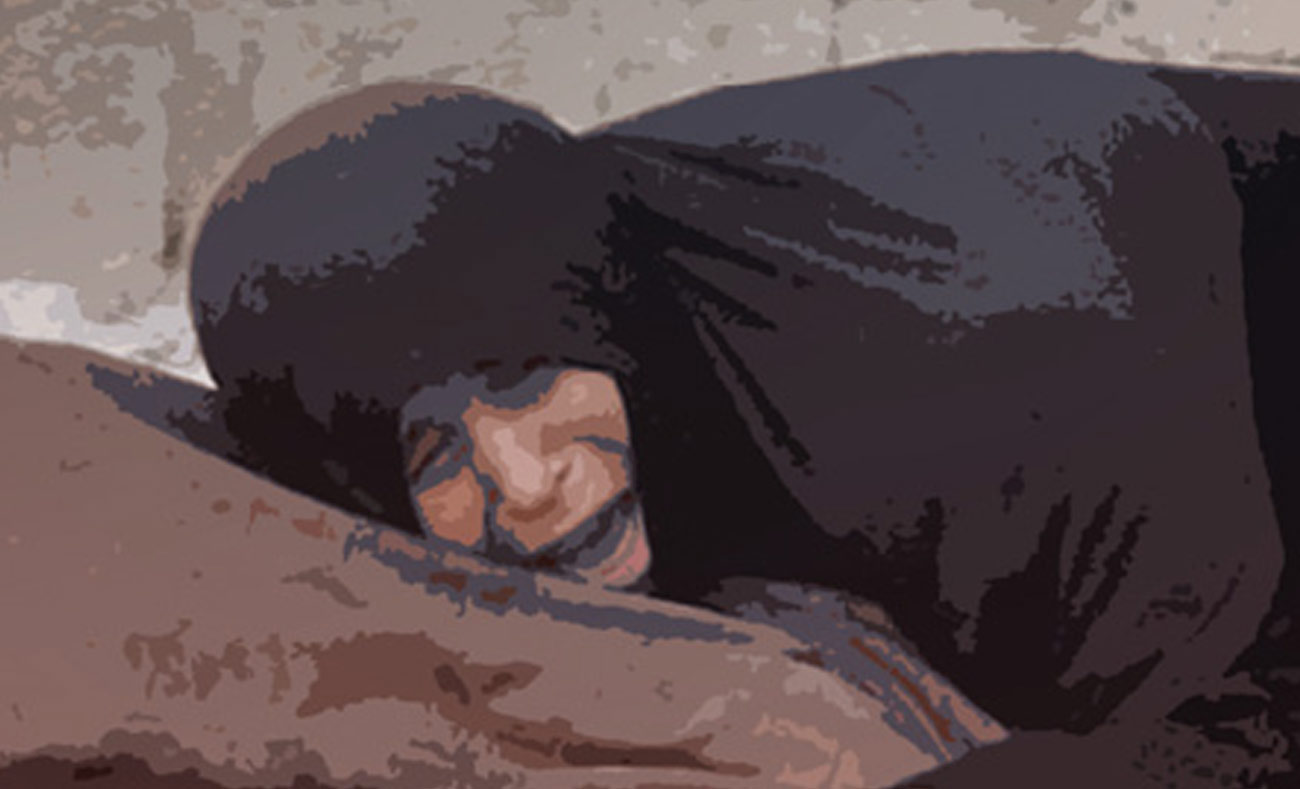
 A woman who lost a member of her family in the bombing of Aleppo (Anadolu News Agency)
A woman who lost a member of her family in the bombing of Aleppo (Anadolu News Agency)





 A
A
A
A
A
A


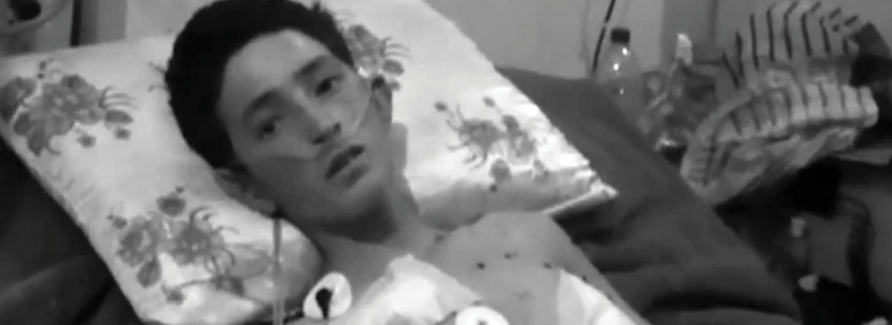
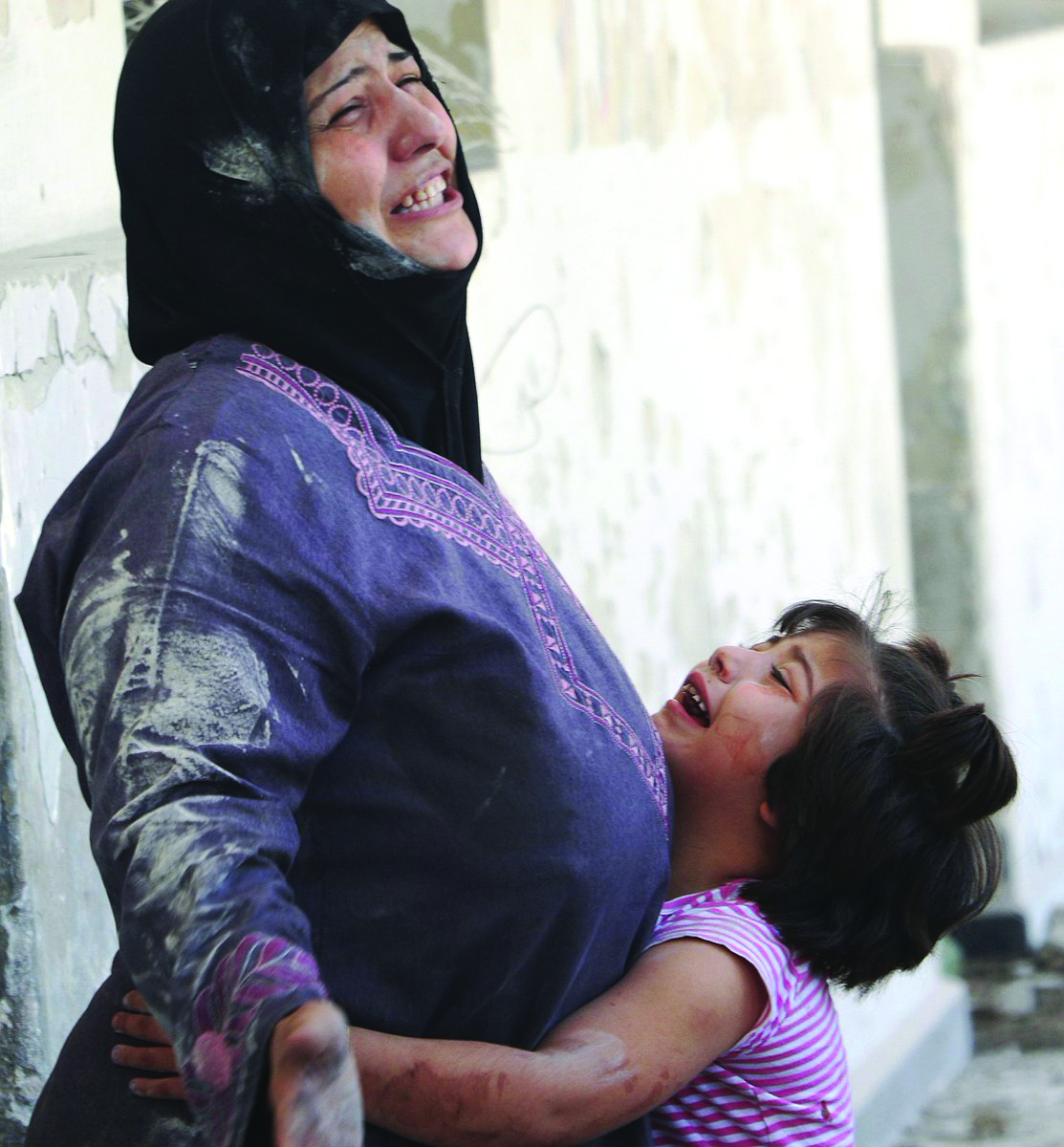


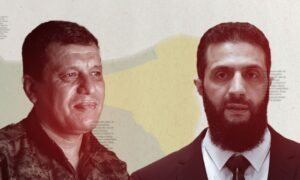
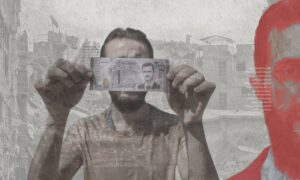
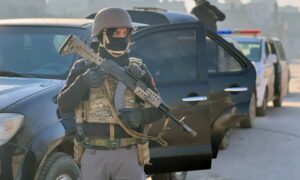


 More In-Depth
More In-Depth